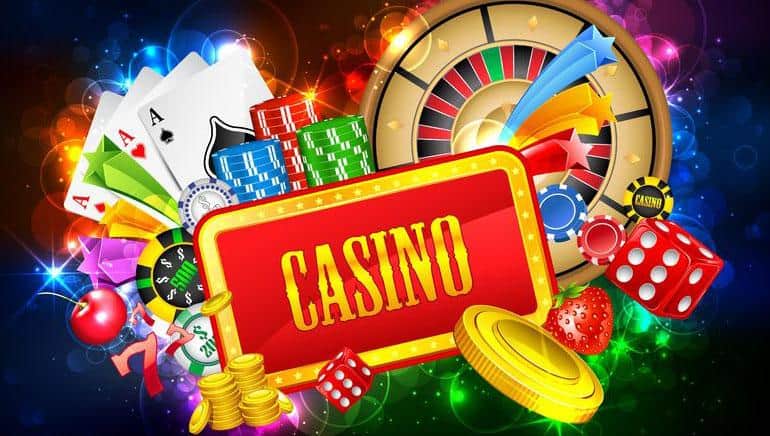Gambling in casinos has long been a topic of interest and controversy, drawing in millions of players globally. With a blend of luck, strategy, and the thrill of uncertainty, casino games offer an exhilarating escape from everyday life. However, as entertainment becomes ever more accessible, it calls for a more thorough examination of the ethical implications surrounding these games.
At the heart of the discussion lies the issue of whether casinos promote responsible gaming or exploit at-risk individuals. The appeal of potential winnings versus the reality of losses can create a challenging dynamic, and understanding this balance is essential for both players and operators. As we delve into the ethics of casino gaming, we will explore the duties of casinos, the effects on society, and the steps that can be taken to foster a better gaming environment.
The Impact of Casino Gaming on Society
Gambling in casinos has a considerable influence on societal dynamics, affecting not only the economy but also social behaviors and local frameworks. The funds generated from casinos can lead to employment opportunities and boost local economies, as they provide multiple employment opportunities in multiple fields including hospitality, entertainment, and shopping. However, while the financial benefits can be substantial, communities often struggle with the potential negative impacts that arise from higher gambling activity.
Moreover, the presence of casinos can lead to an increase in gambling addiction, presenting serious challenges for individuals and families. The thrill of casino games can quickly transform into a compulsive habit, affecting connections with others and leading to monetary issues. Many players may find it difficult with the loss of control over their gambling behaviors, resulting in a need for community support services and help to address this increasing issue. The social cost of gambling addiction can extend through kinships and neighborhoods, creating an urgent need for sensible gambling approaches.
In addition to the economic and social consequences, casino gaming often showcases cultural attitudes towards risk and leisure. It can foster a sense of joy and leisure, attracting visitors and boosting local travel. However, this allure may also conceal the broader implications of gambling as a form of entertainment, provoking ethical questions about its promotion and accessibility. As communities weigh the advantages and disadvantages of casino gaming, the need for sensible approaches and oversight becomes increasingly critical in ensuring that the positive aspects are enhanced while minimizing the negative effects.
Ethical Issues in Gambling Practices
The morality of casino operations often center around the risk for addiction and its consequences on people and households. Gambling can lead to significant monetary distress, impacting not only the betters but also their loved ones. As people become caught in the appeal of winning, many lose sight of their budget, which can result in catastrophic outcomes such as bankruptcy. This raises ethical questions about the responsibility of gambling establishments in promoting safe gambling practices and providing support for those who may be dealing with gambling addiction.
Another major concern is the promotion of gambling to at-risk groups. Casinos often aim at low-income individuals or neighborhoods with the promise of fast gains, which can perpetuate patterns of financial struggle and hopelessness. In this context, the morality of marketing strategies used by gambling establishments come under scrutiny, as they may take advantage of the desperation of individuals seeking an escape from financial hardships. This manipulation raises ethical questions about the integrity of the gambling industry and its responsibility to safeguard its most vulnerable customers.
Additionally, the impact of gambling gaming on the community as a entirety cannot be ignored. While some argue that casinos create employment and stimulate local economies, others point to the community costs associated with dysfunctional gambling, increased crime rates, and a strain on public resources. Balancing financial advantages with the risk for social harm presents a complex moral dilemma for policymakers and casino operators alike. The difficulty lies in finding a responsible approach that takes into account the welfare of people and communities while still permitting for the pleasure of gambling gaming.
Regulatory System and Duties
The regulatory structure pertaining to casino activities is developed to ensure justice, trustworthiness, and participant safety. Various government agencies and gambling commissions create and enforce regulations that dictate how gambling games operate, the criteria for activity creation, and the processes for handling prizes. These regulations vary by jurisdiction but usually involve permit requirements for operators and rigorous measures to prevent deception and dishonesty.

In furthermore to regulatory bodies, gaming establishments bear considerable duty in preserving ethical standards within their establishments. They must implement responsible gambling practices that promote gambler security and consciousness, including presenting self-ban options and offering information about the hazards associated with gambling. Casinos are also obligated for educating workers to recognize signs of compulsive gambling and be aware of the correct measures to help visitors in need. Nhà cái RR88
Furthermore, transparency in gaming operations is essential for building and maintaining public confidence. Casinos should provide clear information about the probabilities of games, marketing offers, and any associated risks. By fostering an culture of honesty and accountability, casinos can help mitigate the possible negative impact of gambling while improving the general gambling experience for all gamblers.



